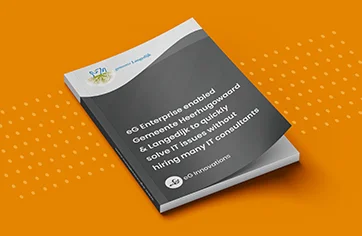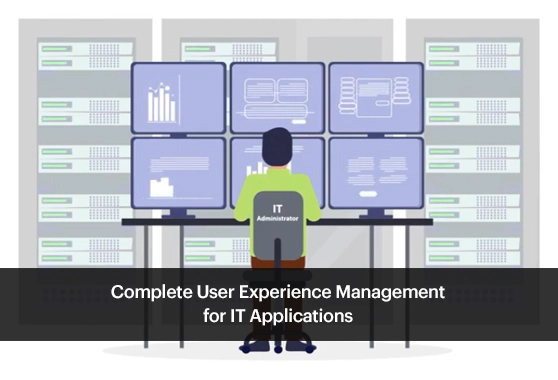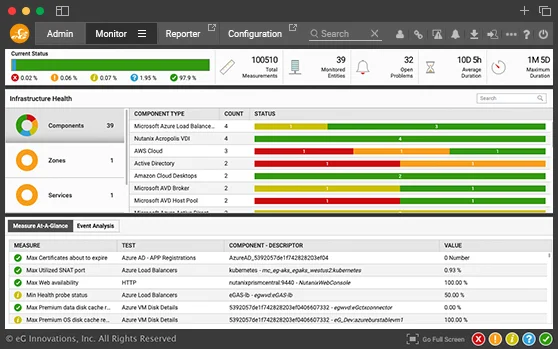Converged Application and Infrastructure Monitoring for Government Agencies
Free TrialDigital Transformation in Government
IT modernization projects and increasing demands to digitize and provide more services online are driving change throughout all levels of government worldwide with expectations that government must offering better value to taxpayers and increased quality of service and accountability to individual citizens and overall civil inclusion.
Federal bodies, local government bodies, town councils and public services deliver critical services ranging from libraries, garbage collection, highway repairs, child protection services, social housing, and public health provision that impact both individuals and communities. IT failures and the downtime or slowness of key applications and web services have the potential to impact real people, their quality of life and even their safety and health.

Additionally, governmental organizations are seeking better ways to manage and deliver vast quantities of digitized and legacy assets ranging from pdf forms, contracts, public information websites and so on.
Ensuring Performance and Availability of
Critical Public Services for Communities
Many public sector bodies are being mandated to adopt formal national strategies relating to IT technologies and as a result, many are needing to adopt newer technologies and best practices at scale. Often this includes a cloud-first strategy and providing online service availability commitments.
Many governmental organizations are virtualizing their key applications and services that employees need to use to serve their communities. They are also implementing hybrid flexible-working programs and emergency work-from-home plans to cover COVID-19 like scenarios.

Even though cloud providers offer SLAs (Service Level Agreements), these are focused on availability of the infrastructure. Hence, the responsibility for ensuring application availability and response times rests with the different government organizations supporting these applications. User satisfaction and employee productivity is also tied to the ability to pinpoint a root-cause failure quickly – e.g., is the issue in the network, database, application, Citrix, cloud, or with a third-party supplier.
Hence, it is critical that their IT teams and help desk staff have appropriate tools to troubleshoot and resolve IT issues rapidly.
Secure and Traceable governance, Risk Management, Data Protection and Compliance
Security and the protection of citizens’ data are critical for government and public bodies. Governmental IT professionals must have access to actionable data, allowing them to address complex and constantly changing government compliance and data control regulations and internal requirements. eG Enterprise's universal monitoring technology assist organizations with their key compliance requirements, including:
- Get detailed reports documenting who logged in to the digital workspace, at what time, for how long and on which systems
- Track application usage by users, their client devices, active times, and idle times in a session
- Get alerts whenever logons to Citrix NetScaler or any of your systems fail, or if any security events have been detected
- With machine learning and auto-baselining technologies included, get proactive alerts on unusual access patterns or trends
- Proactively monitor your authentication technologies such as Active Directory for malicious attacks
eG Enterprise is designed to be compliant with the most robust of security certifications:
- SAML and 2-factor authentication to prevent unauthorized access for on-prem and cloud deployments
- Option to integrate with Active Directory
- SSL/TLS 1.2 is used for all communications and SSL Labs rates eG Enterprise as A+
- No changes required to your corporate firewalls
Case Studies

Dutch municipalities shifts to user-centric, proactive performance monitoring with eG Enterprise
eG Enterprise enables Equalit's IT team of 35 employees to cater to the growing user base of municipal employees and their evolving needs which includes technologies such as VMware, Citrix, and online services.

eG Enterprise enabled gemeente Heerhugowaard & Langedijk to quickly solve IT issues without hiring many IT consultants
To serve the local citizens better and on time, the gemeente Heerhugowaard & Langedijk have 800+ employees/end users reliant on IT infrastructure built on 50+ servers (using supporting technologies, such as Citrix, SQL, hypervisors, storage, etc.) and services like O365. Read about how eG Enterprise was used during a large project to merge the two local districts’ services and previously separate IT infrastructures.

End-to-End Citrix Monitoring Improves User Performance and Reduces IT Costs for RSVZ
Alerts via email and dashboards on a mobile device enable IT administrators to keep track of their Citrix infrastructure from anywhere. They have been able to proactively fix issues before users complain. As a result, the number of service desk tickets has significantly reduced.










